Get Well Water Testing in Denver, CO
Well water testing services for Denver property owners identify contaminants, assess water quality, and ensure safe drinking water through inspections by trusted local contractors.
Property owners in Denver, CO, considering well water testing often do so to ensure the safety and quality of their water supply. Whether you're preparing for a home upgrade, addressing concerns about water taste or odor, or planning to install new fixtures, understanding your well’s condition is an important step. Local service providers can offer insights into water quality, help identify potential issues, and provide guidance tailored to the specific needs of properties in the Denver area.
Exploring options for well water testing involves comparing local contractors who specialize in water analysis and testing services. These professionals can assist with planning your project, ensuring the testing process aligns with your property’s requirements, and helping you make informed decisions. Keep reading to discover how connecting with experienced local experts can support your property’s water quality management.
- Well Water Testing - when homeowners in Denver neighborhoods suspect contamination or changes in water quality.
- Water Quality Analysis - for residents experiencing unusual tastes, odors, or discoloration in their well water.
- Contaminant Screening - if local residents want to identify potential pollutants like bacteria, nitrates, or heavy metals.
- Routine Water Checks - to ensure ongoing safety and compliance for properties relying on private wells near Boulder or Aurora.
- Water Safety Assessments - when property owners need to verify well water conditions before installing appliances or fixtures.
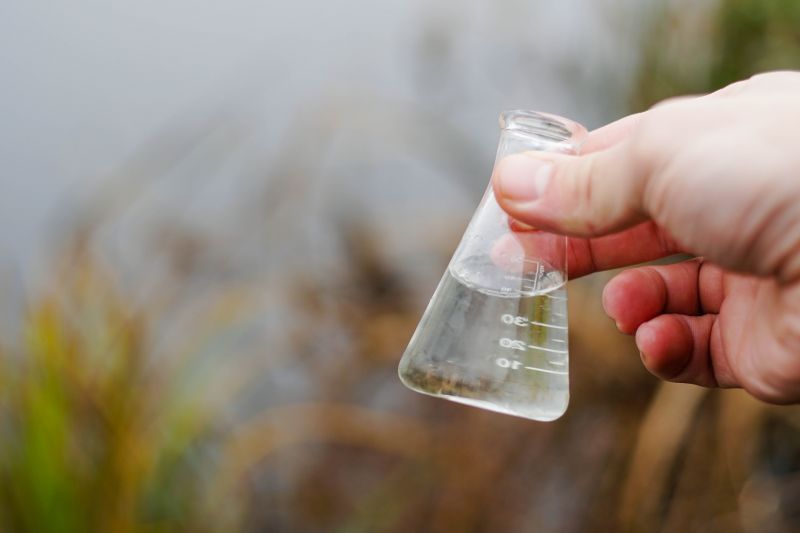
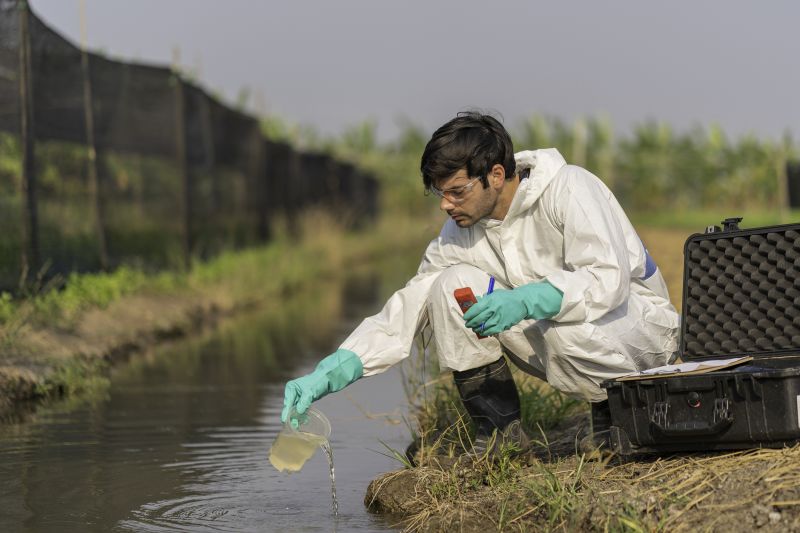
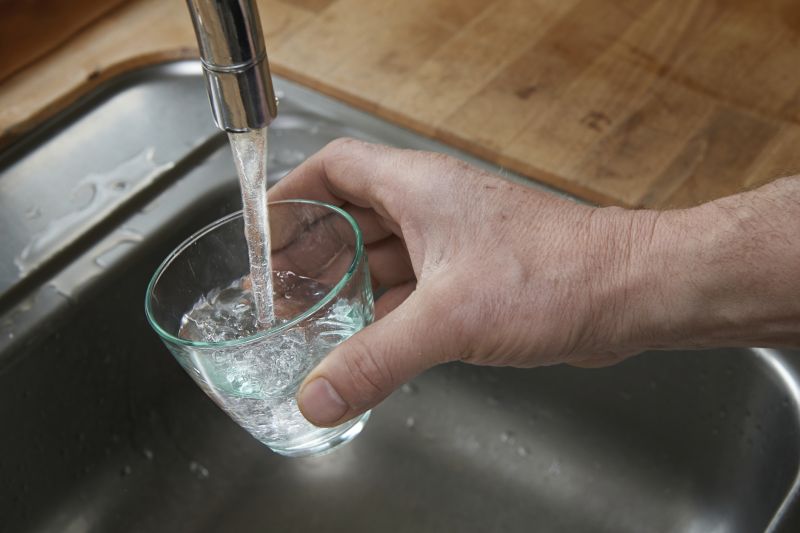
Well water testing services involve analyzing the quality of water sourced from private wells or other non-municipal sources. These tests typically assess for contaminants such as bacteria, nitrates, heavy metals, minerals, and other impurities that could affect health or water taste. The process usually includes collecting a water sample and sending it to a laboratory for detailed analysis. Homeowners can then receive a comprehensive report on their water’s condition, helping them understand whether their well water is safe for drinking and household use.
This service helps address common problems associated with well water, such as bacterial contamination, high levels of minerals like iron or manganese, or the presence of harmful chemicals. Detecting these issues early can prevent health risks, reduce appliance damage, and improve overall water quality. Well water testing is especially valuable for those experiencing unusual tastes, odors, or discoloration in their water, or after a well has been installed or serviced. Regular testing can also identify emerging problems before they become serious concerns.
Properties that typically use well water testing services include private residences with their own wells, rural homes, farms, and properties in areas where municipal water supplies are not available. These properties rely entirely on their well systems for drinking, cooking, bathing, and irrigation. Additionally, vacation homes, cabins, or properties undergoing renovations often benefit from testing to ensure water safety during occupancy. Homeowners who want peace of mind about their water quality or are preparing to sell their property may also seek well water testing services.
Overall, well water testing provides homeowners with essential information about their water source’s safety and quality. It helps identify potential health hazards and ensures that the water used daily is clean and safe. When signs of water issues arise or after installing a new well, connecting with local service providers can ensure the water meets safety standards. These professionals can perform thorough testing and recommend appropriate solutions if problems are detected, supporting safe and reliable water use for residential properties.
The overview below groups typical Well Water Testing projects into broad ranges so you can see how smaller, mid-sized, and larger jobs often compare in Denver, CO.
In many markets, a large share of routine jobs stays in the lower and middle ranges, while only a smaller percentage of projects moves into the highest bands when the work is more complex or site conditions are harder than average.
Smaller Repairs - basic well water testing services typically range from $150 to $300 for many routine inspections. These projects often involve testing for common contaminants and are usually straightforward. Fewer projects fall into the higher end of this range unless additional testing is required.
Standard Testing - comprehensive well water testing services generally cost between $300 and $600. Many local contractors handle these mid-sized projects, which include testing for a broad spectrum of contaminants and water quality parameters. Larger or more detailed tests can push costs higher.
System Upgrades or Repairs - replacing or repairing well components, such as pumps or filters, can range from $600 to $2,000 depending on the scope. Many projects in this category fall within the lower to middle part of this range, with more complex repairs reaching higher costs.
Full System Replacement - complete well system replacements can cost $2,500 to $5,000 or more for larger, more complex projects. These are less common and tend to involve extensive work, with most projects in this range being on the higher end due to the scale of installation and materials involved.
Actual totals will depend on details like access to the work area, the scope of the project, and the materials selected, so use these as general starting points rather than exact figures.
Well Water Testing for Private Wells - Local contractors can perform comprehensive testing to ensure private well water meets safety standards and is free from contaminants.
Water Quality Analysis Services - Service providers can analyze water samples for mineral content, bacteria, and other impurities, similar to well water testing processes.
Water Filtration System Installation - Professionals who install filtration systems often have experience with water testing to determine the appropriate treatment solutions.
Water Sample Collection and Laboratory Testing - Similar skills are used in collecting and handling water samples for laboratory analysis to identify potential issues.
Environmental Water Testing - This involves testing local water sources for pollutants, requiring similar planning, sampling, and analysis techniques as well water testing.
Water System Maintenance and Inspection - Inspecting and maintaining residential water systems often includes testing water quality to diagnose and address issues.
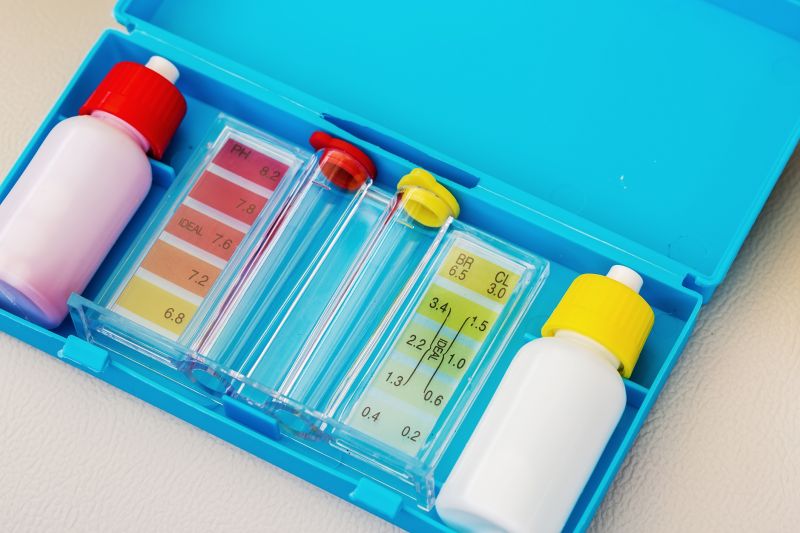
When comparing service providers for well water testing, it’s important to consider their experience with similar projects in the Denver area or nearby communities. An established local contractor will typically have a history of working with homeowners who have concerns about well water quality, which can indicate familiarity with common issues and local water conditions. This experience can help ensure the testing process is thorough and that any recommendations are based on a solid understanding of regional water challenges.
Clear, written expectations are essential when evaluating potential providers. Homeowners should seek out service providers who can offer detailed descriptions of the testing process, the types of tests performed, and what the results will include. Having this information in writing helps prevent misunderstandings and ensures that everyone is aligned on what the service entails. Reputable local contractors will be transparent about their procedures and provide documentation or reports that clearly explain their findings.
Good communication and reputable references are key indicators of reliable service providers. Homeowners are encouraged to ask for references or reviews from previous clients, especially those who had similar testing needs. A provider who communicates well-answering questions promptly and providing understandable explanations-can make the process smoother and more informative. It’s important to remember that this site introduces homeowners to local options for well water testing; it does not perform the work itself. Connecting with trusted local contractors who prioritize clear communication and have a solid reputation can help ensure the testing process is handled professionally and efficiently.
Property owners in Denver, CO use Well Water Testing services for practical projects around their homes and businesses. This guide focuses on everyday jobs and straightforward project options.
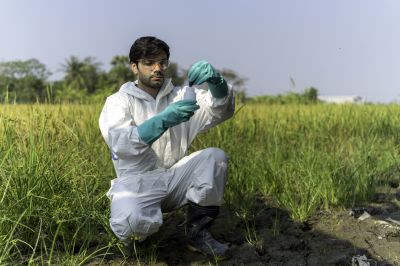
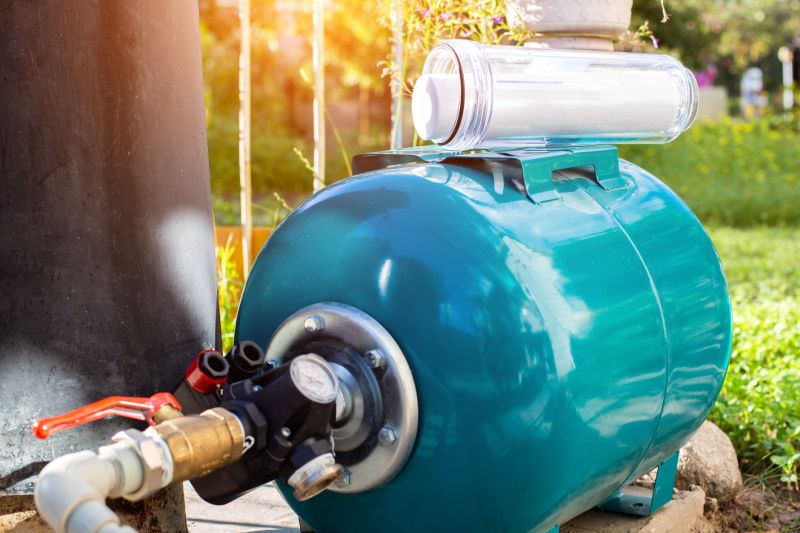
Property owners in Denver, CO may seek well water testing services when they notice changes in water taste, odor, or clarity, which could indicate contamination or mineral buildup. Additionally, those who have recently drilled a new well or moved into a property with a private water source often look for professional testing to ensure their water is safe for daily use and consumption. Regular testing can help identify potential issues early, providing peace of mind for households relying on well water for drinking, cooking, and cleaning.
Local contractors offering well water testing can assist homeowners in addressing concerns related to water quality, especially in areas where the geology and natural mineral content vary. Property owners might also consider testing if they experience unexplained changes in water pressure or if they are preparing to sell their home and want to provide potential buyers with assurance about water safety. These services are valuable for maintaining water quality standards and ensuring that private water supplies meet health and safety expectations.
What contaminants can well water testing detect? Well water testing can identify common contaminants such as bacteria, nitrates, heavy metals, and other pollutants that may affect water quality and safety.
Why is regular testing of well water important? Regular testing helps ensure the water remains safe to drink, detects potential issues early, and maintains compliance with health guidelines.
How do local service providers perform well water testing? Local contractors typically collect water samples and analyze them using specialized laboratory equipment to identify any contaminants present.
Can well water testing identify issues with water taste or odor? Yes, testing can reveal the presence of substances that cause unpleasant tastes or odors, indicating potential water quality problems.
What should I do if my well water test shows contamination? If contamination is detected, local service providers can recommend appropriate treatment options or further testing to address water quality concerns.
Well Water Quality Assessment - property owners can use testing services to ensure their well water is safe for daily use and identify any potential contaminants.
Water Safety for Household Use - testing helps homeowners verify that their water meets health standards before using it for drinking, cooking, or cleaning.
Pre-Installation Testing for New Wells - property owners planning to install a new well can have water tested to determine its quality and suitability for their needs.
Troubleshooting Water Issues - residents experiencing changes in taste, odor, or water appearance can use testing services to diagnose possible water quality problems.

If you are thinking about Well Water Testing for a property in Denver, CO, this guide is meant to help you understand the work, the typical project types, and how different options might fit your plans.
When you are ready, you can use the quote form on this page to share a few details about your project. From there, local pros can review the basics and respond with options that match what you have in mind.
